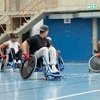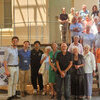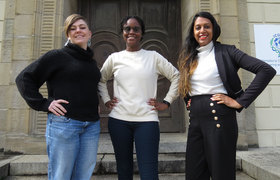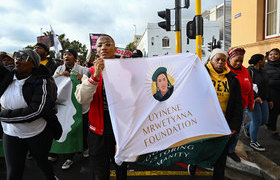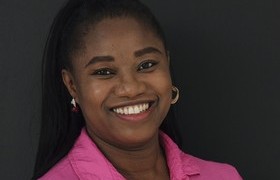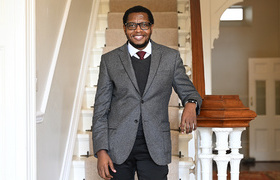Opening doors for young African women in science
04 August 2025 | Story Lisa Templeton. Photos Supplied. Read time 6 min.
“It’s incredibly rewarding to reflect on how far I’ve come, from navigating the challenges of postgraduate study to finding myself in spaces I once only dreamed of. It’s a reminder that perseverance, purpose, and the right support systems can open doors not just for individuals, but for the communities they represent. That’s the legacy I want to be part of, one that makes space for more young African women to take up space in science.”
So said Carol Ngwenya, who will be graduating with a PhD in chemical engineering in March 2026. Her work focuses on waste-to-energy technologies, looking at the conversion of carbohydrate-rich confectionary waste, via microbial systems, to alternative energy sources. In so doing, working towards a sustainable, circular bio-economy solution, offsetting reliance on fossil fuels and diverting waste from landfill.
“What makes it interesting is the integration of chemical engineering, biotechnology, and sustainability towards tackling two pressing challenges simultaneously: waste management and clean energy generation.”
It also, Ngwenya argued, gave her the skills to neatly segue into the healthcare space, and a new role in biopharmaceutical organisation, Afrigen Biologics and Vaccines, working towards the development of an mRNA vaccine platform to accelerate vaccine production in Africa and boost access to communities, democratising the vaccine industry on the continent.
Through the World Health Organization-supported mRNA Technology Transfer Programme, Afrigen is helping decentralise vaccine production by equipping low- and middle-income countries with the skills, knowledge, and tools to manufacture mRNA vaccines locally.
“Being part of a team working to build local manufacturing capacity is incredibly meaningful. It’s inspiring to know that the work we’re doing could help ensure that vaccines are developed, produced and distributed from within the continent, making access faster, fairer and more sustainable.”
Dreaming big from small beginnings
Born in Nelspruit, Mpumalanga, and raised in the township of Kamhlushwa, Ngwenya was raised by her late grandparents, who were “incredibly supportive” of her education and independence.
“My grandfather, in particular, held on through his battle with cancer until I started earning a salary and no longer needed financial help. It was as if he could finally rest, knowing I would be okay,” she recalled.

It was her older sister who sparked Ngwenya’s interest in science, when she revised her biology notes by teaching her little sister. “I remember her explaining photosynthesis. I was fascinated, partly because of how she pronounced it. I told myself one day I would be able to pronounce photosynthesis!”
Ngwenya chose biotechnology more by chance than design, basing her decision on her favourite subject, Life Sciences, and a photograph she’d seen of a woman in a white lab coat holding what she now knows is a pipette.
Why UCT, and what my PhD has done for me
It was while a student at the Cape Peninsula University of Technology, that Ngwenya joined the Centre for Bioprocess Engineering Research (CeBER) as an intern within the Department of Chemical Engineering, a “challenging” opportunity that lead to an invitation by Professor Sue Harrison to remain on the research group as a student.
“It proved a true turning point. Within my first year of registration, I was awarded Best Poster Presenter at the EBE [Faculty of Engineering & the Built Environment] Research Day and later had the honour of attending the BRICS Young Scientist Conference.”
“UCT has given me not only academic excellence, but mentorship and opportunities fundamental in shaping my career.”
She was also selected as a Carnegie HUMA Scholar, a UNCTAD Young Female Scientist Fellow, which included a research exchange with Japan, and attended the Global Young Scientists Summit (GYSS) in Singapore.
“These experiences broadened my perspective and reinforced my commitment to impactful, globally relevant science driven by African researchers. UCT has given me not only academic excellence, but mentorship and opportunities fundamental in shaping my career.”
Today Ngwenya is a bioprocess scientist, “or as I prefer, Bioprincess”, in Chemistry Manufacturing Controls (CMC) at Afrigen, supporting the development and optimisation of mRNA vaccine manufacturing processes.
“This work is incredibly relevant because it’s not just about producing vaccines,” Ngwenya said. “It’s about changing the global landscape of who gets to make them.
“Being directly involved in the training of our partners from lower- and middle-income countries has been humbling and empowering. It’s a powerful experience to share knowledge, and see it spark capability and confidence in others. The programme isn’t just transferring technology, it’s building long-term capacity, strengthening regional self-reliance, and creating a network of skilled professionals who can respond to future health crises from within their own countries.”
Advice for young women
“Seize every opportunity and give it your all, even if you don’t feel completely ready. Growth often comes from stepping into the unknown.
“In engineering and science, trust you belong, even when the space feels unfamiliar. Your voice and perspective are not only valid, but essential.”
Ngwenya said she is proud to be a product of strong female leadership, shaped by the guidance of her PhD supervisors, Dr Mariette Smart and Professor Sue Harrison, and women in the industry, including Dr Madelyn Johnstone-Robertson; Dr Caryn Fenner, executive director of the mRNA hub at Afrigen; and CEO, Dr Petro Terblanche.
“Their example has shown me what’s possible, and I look forward to a future where women in science and engineering are not the exception but the norm.”
 This work is licensed under a Creative Commons Attribution-NoDerivatives 4.0 International License.
This work is licensed under a Creative Commons Attribution-NoDerivatives 4.0 International License.
Please view the republishing articles page for more information.




